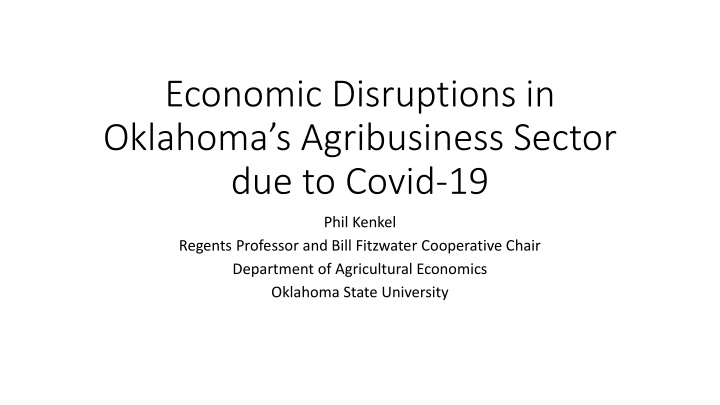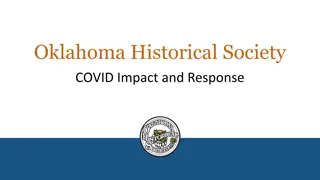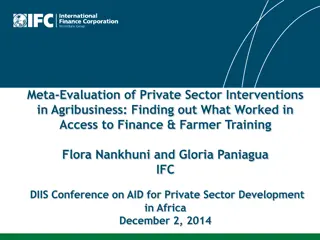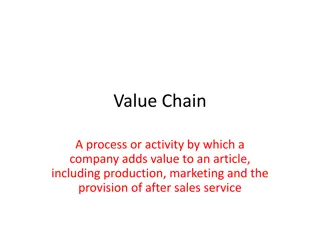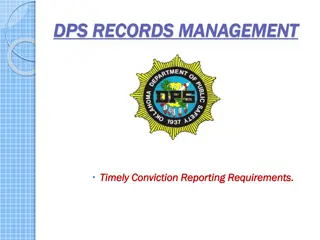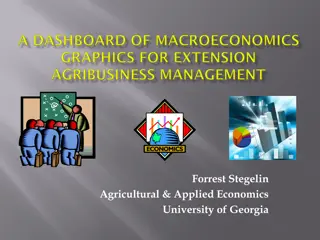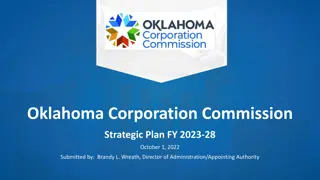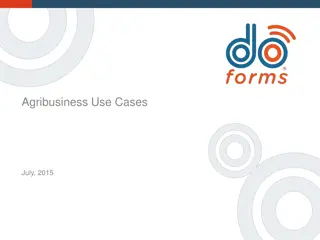Economic Disruptions in Oklahoma's Agribusiness Sector due to Covid-19
The economic disruptions in Oklahoma's agribusiness sector due to Covid-19 have had profound impacts on various aspects including input services, commodity-focused agribusinesses, agricultural cooperatives, retail and facility operations, and human resources.
Download Presentation

Please find below an Image/Link to download the presentation.
The content on the website is provided AS IS for your information and personal use only. It may not be sold, licensed, or shared on other websites without obtaining consent from the author.If you encounter any issues during the download, it is possible that the publisher has removed the file from their server.
You are allowed to download the files provided on this website for personal or commercial use, subject to the condition that they are used lawfully. All files are the property of their respective owners.
The content on the website is provided AS IS for your information and personal use only. It may not be sold, licensed, or shared on other websites without obtaining consent from the author.
E N D
Presentation Transcript
Economic Disruptions in Oklahoma s Agribusiness Sector due to Covid-19 Phil Kenkel Regents Professor and Bill Fitzwater Cooperative Chair Department of Agricultural Economics Oklahoma State University
Oklahomas Agribusiness Sector Input and services supporting crop and livestock production Equipment Commodity first handling, initial processing and marketing Cattle feeding sector Livestock harvest sector Food processing and food service Probably more sectors I didn t list
Commodity focused Agribusinesses Farm supply- fuel, fertilizer, feed, crop protection products, crop scouting, fertilizer and crop protectant application. Also fertilizer manufacturing and rail and barge receiving. Commodity marketing and storage-grain marketing, grain storage, grain rail shipping, barge shipping, livestock sale operations, cotton ginning, cotton seed marketing, cotton bale warehousing.
Oklahomas Agricultural Cooperatives Grain marketing, storage and rail loadout Farm supply including agronomy services, fertilizer warehousing, fertilizer application and feed manufacturing and sales Cotton ginning including modular hauling Cotton seed processing and rail load out Cotton bale warehousing and marketing Cooperatives are farmer owned and operate as an extension of the farm firm. Cooperative members are directly impacted by changes in operation and also indirectly impact from increased costs and decreased profits
Impacts on Retail and Facility Operations Closed lobbies and limited contact with customers Increased sanitation Some employees working remotely Created challenges in providing advice, recommendations to farmer owners Decline in oil and gas activity has reduced demand for petroleum products and equipment service
Human Resource Impacts Created complex questions involving employment and benefit policies and regulatory compliance Cooperative operate on lean workforce structure which is challenged by additional sanitation, less efficient communication and remote operations Restricted travel and closure of state and federal offices make it difficult for employees to receive training on grain elevator safety, pesticide application, grain grading and training and testing for commercial drivers licenses
Commodity Marketing Impacts Reduced grain prices have put downward pressure on grain handling and storage margins More difficult to communicate marketing options and programs A survey by the OACC indicated that grain handling cooperatives faced a shortage of 10,000 grain dust respirators Cotton ginning and warehouse cooperatives rely on non-U.S. workforce and could be impacted by labor shortages
Governance Issues Cooperatives have been unable to hold annual meetings which are mandated in their Articles of Incorporation and Bylaws Many cooperatives have not modernized Bylaws to allow for on-line voting Board of Directors are holding virtual meeting which raise issues involving proof of quorum, voting and data security Most cooperative members rely on face to face communication to stay up to date with their cooperative and to express their opinions and preferences. Member communication has become a challenge
Financial Issues Reduced grain handling and storage margins Increased operation costs Increase in delinquent accounts receivable as member financial condition declines due to job losses, furloughs and a reduction in oil and gas royalty payments All costs and lost revenues are ultimately borne by the farmer owners.
